
Slate is an Amazon affiliate and may receive a commission from purchases you make through our links.
The A-hole in the Mirror
On being that guy.
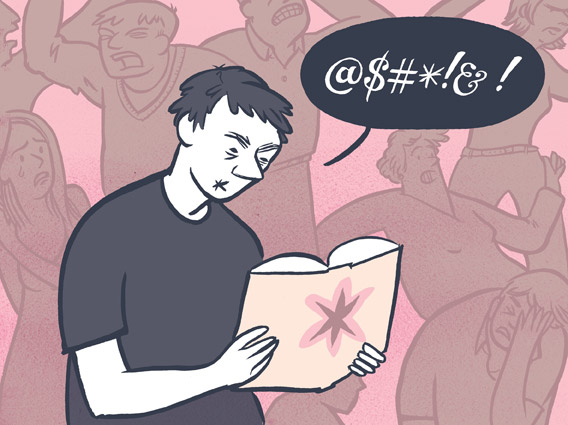
Illustration by Laura Terry.
A friend of mine who grew up in Los Angeles once declared that transplants to Gotham only truly become New Yorkers when they exchange the exhortation "motherfucker," which, to be sure, has a satisfying sting, for "cocksucker"—a designation more mellifluous, the ugliness behind its origin notwithstanding. And yet, as comforting as both those epithets may be, in the colloquial currency of a city where you are constantly confronted by a teeming mass of narcissists hell-bent on thwarting whatever goal you hope to achieve (even something simple as completing a speedy transaction at an ATM), the most common denomination of irritant—the dollar bill of sweary, frustrated descriptors for those exasperating sacks of skin swarming our space—is “asshole.”
This is not to suggest that the asshole is some sort of miscreant unique to the urban environment. There are assholes everywhere; the fact that cities are so densely packed simply provides us with more frequent opportunities for contact with them. Anyone who has ever driven on a highway, attempted to make a quick purchase in the express aisle at the grocery, or attended a family holiday gathering has encountered an asshole. One need only turn on the television to find oneself subject to the spectacle of an asshole condemning or defending another asshole, while yet a third asshole provides commentary on the assholishness of the previous two—a veritable Möbius strip of assholism. While so many of our natural resources seem to be running short these days, the supply of assholes appears to be a growth industry with unlimited upside.
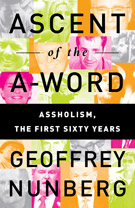
But who and what exactly is the asshole? Two new books attempt to answer the question. U.C.–Berkeley linguist Geoffrey Nunberg’s Ascent of the A-Word and U.C. –Irvine philosophy professor Aaron James’ Assholes: A Theory focus on this commonplace scourge. Befitting their respective disciplines, Nunberg’s book is more concerned with the evolution of the appellation while James grapples with the existential reality of the asshole in hopes that in understanding his (and the general consensus is that it’s usually a he) essence one might more successfully manage him. Both books acknowledge their sizable debt to Harry G. Frankfurt’s 1986 essay On Bullshit, popularized by its 2005 publication as a stand-alone volume. (In retrospect, it’s a bit surprising that the book’s success did not launch an entire genre of treatises based on bad words; pity the poor philosopher who missed the chance to explore the semiotics of “douchebag” before that word lost its cachet circa 2006.)
Here’s how our anthropologists of assholes characterize their subjects. James:
A person counts as an asshole when, and only when, he systematically allows himself to enjoy special advantages in interpersonal relations out of an entrenched sense of entitlement that immunizes him against the complaints of other people.
Nunberg:
Asshole launches its attack from the ground level, in the name of ordinary Joes, people whose moral authority derives not from their rank or breeding but from their authenticity, which is exactly the thing that the asshole lacks. Inauthenticity is implicit whenever we speak of a “sense of entitlement,” another phrase that entered the American idiom around the time asshole did. ... The connection is intrinsic to the idea of the asshole, who imagines that his role or status gives him privileges that aren’t really his to claim. ... The asshole’s obtuseness makes him incapable of separating his sense of who he is or what he does or what he has or what he knows, which is what it means to be inauthentic.
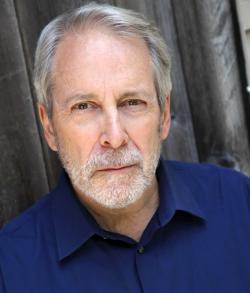
Photo by Nicole Katano.
As general summary, these definitions are difficult to argue with. One might, in fact, wonder whether these books are strictly necessary, given that we all pretty much know what makes an asshole an asshole. But both works are enjoyable in their own right; those more interested in language will take more away from Nunberg, who is the livelier of the two writers, while seekers of philosophical meaning will find much to ponder with James. More importantly, they make us confront a crucial question, which, I believe, we ask ourselves all too infrequently: How much of an asshole am I?
Discard for the moment the idea of political assholism (although I would be remiss if I did not mention Nunberg’s flawless observation about how much of it these days is predicated on the joy the political asshole and his adherents take in the assumption that they are infuriating their opposites through their assholishness). Forget those times you have been unpleasant to a customer service representative (no matter how convinced you were that you were completely in the right). Let’s dispense with that day when, mid-commute, you buried your face deep in the newspaper and read the same sentence over and over rather than acknowledge the human being in front of you in desperate need. Instead, if you dare, allow yourself to summon up a Big Cringe.
It shouldn’t be hard to do. After all, it’s a memory that comes rushing unbidden to the forefront of your consciousness at the most inopportune of moments and prevents you from doing anything else but acknowledging the fact that, in whatever horrible situation you are now being forced to recall, you were an asshole. For those of us who are assholes by habit rather than circumstance, there’s a vast storeroom of these experiences with which to grapple; the only bit of novelty on these occasions is discovering which random selection your bastard brain has chosen to bring forth. You may have been a drunk asshole, you may have been an insensitive asshole, you may even have been an accidental asshole, but there is no getting around it: You were an asshole.
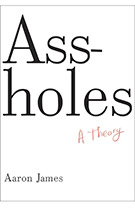
I offer you my most sincere sympathies. Though I am an unrepentant asshole, that doesn’t mean I am somehow immune to the cringe. Indeed, sometimes I spend my entire day in a near-catatonic state of shame and regret. What I mean by unrepentant is that I continue to be an asshole, I don’t take proper steps to prevent being an asshole in the future, and sometimes I am actually aware that I am being an asshole in the exact moment that I am being an asshole. I have spent more time than I care to remember explaining why “gender essentialism” is a theory absurd in its very conception to women who have spent years studying—and living by—the ideals of feminism. After a friend lost a not-insubstantial amount of money on a risky but tenable proposition, I passed the better part of a week forwarding him various spam come-ons, with the subject line: FW: Investment Opportunity! Naturally, I cc’d a large group of our acquaintances in such a jovial manner that it seemed churlish for the mockee, surely heartsick, to call me out. I once went three hours listening to someone very close to me describe, in choked-up detail, the end of a relationship that had lasted six years, which coincided with her being laid off from her job. When she finally dried her eyes and asked how things were on my end, all I had to say was, “Oh, same old, same old.”
In short, my bloated sense of entitlement will overcome my massive collection of insecurities every single time. Yes, I am that kind of asshole. You know someone like me. You are inexplicably friends with someone like me. Perhaps you have, on one or two regrettable occasions, been someone like me.
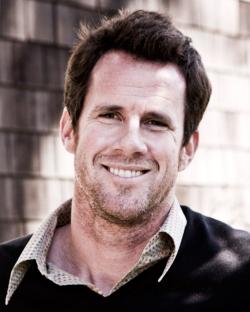
Photograph by James Hammack.
For we are all the asshole every now and again. It’s just a question of degree. For an asshole of my caliber, there is, I am sorry to say, no chance for redemption. (The fact that I am actually claiming superiority in the arena of assholery proves, I think, what an asshole I actually am.) But the beauty of these two light-hearted yet thought-provoking books is that they identify the characteristics that make us, however involuntarily, assholes. Our capacity for love and compassion—the better angels of our nature, as it were—is what we like to think makes us special as a species, but without the other side of that coin, we would, in fact, be only angels. It is being an asshole that rounds out the whole flawed condition of our existence. It also keeps things interesting.
Still, let me offer this: If you know you’ve been an asshole, you’re actually less of an asshole than you think you are. Whatever terrible torments you recall with fingers pressed fiercely to your face, the very act of acknowledgment means there’s more good in you than you really comprehend. Unless you’re a total dick, in which case no book is ever going to help.
---
Ascent of the A-Word: Assholism, the First Sixty Years by Geoffrey Nunberg. PublicAffairs.
Assholes: A Theory by Aaron James. Doubleday.
See all the pieces in this month’s Slate Book Review.
Sign up for the Slate Book Review monthly newsletter.